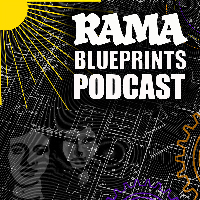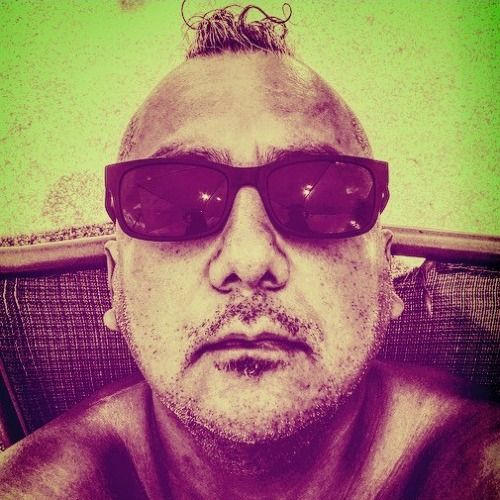full
eXtra History: Esperanza Echavarri
Esperanza Echavarri's journey leads her to work with EMUNYO and RAP. A retired licensed clinical social worker, community activist, organizer, and cultural practitioner for over 40 years, Esperanza's commitment to social change significantly contributed to revolutionizing the mental health systems of San Francisco.
In this installment of the RAMA Blueprints eXtra, we listened to Esperanza Echavarri talk about her experiences during the Third World Liberation Front Strikes of 1968 at San Francisco State University.
Transcript
Esperanza Echavarri's journey leads her to work with EMUNYO and RAP.
Socorro:Her background in mental health would serve as an asset to help young people
Socorro:being released from Juvenile Hall.
Socorro:She helps to establish mental health services within the
Socorro:Mission District, which eventually leads to the establishment of
Socorro:Instituto Familiar de La Raza.
Socorro:After years of working with RAP, she became the director of Mission
Socorro:Mental Health and served as a commissioner with the San Francisco
Socorro:Juvenile Justice Commission and on the board of Directors for both RAP
Socorro:and Instituto Familiar de La Raza.
Socorro:A retired licensed clinical social worker, community activist, organizer,
Socorro:and cultural practitioner for over 40 years, Esperanza's commitment
Socorro:to social change significantly contributed to revolutionizing the
Socorro:mental health systems of San Francisco.
Socorro:In this installment of the RAMA Blueprints eXtra, we listened to Esperanza
Socorro:Echavarri talk about her experiences during the Third World Liberation
Socorro:Front Strikes of 1968 at San Francisco State University and how it set her
Socorro:career path in community based work.
Socorro:With a corazón and commitment to social change, here is Esperanza Echavarri.
Espy:I think because my mom had such strong spirit, I always
Espy:had that sense of injustice.
Espy:And then being in a third world environment in school,
Espy:it was very segregated.
Espy:It was white, black, and Asian, and there was hardly any Latinos.
Espy:John F.
Espy:Kennedy was a major thing that he died and then assassinations.
Espy:I really sensed a social kind of disorder about how people are treated and it raises
Espy:a consciousness when you're a young teen.
Espy:I'm a young 13, 14, 15 year old person being exposed.
Espy:So that got me thinking politically what's really going on here in this country.
Espy:But I think, what hit it for me was when I went to San Francisco State and that was
Espy:the pivotal time just before the strike.
Espy:When I went to State is really where I got my education when they were
Espy:protesting about this professor who was terminated and the students
Espy:were out demanding his return.
Espy:So I started to go to those rallies.
Espy:And so then that turned into, we need a department, we need a ethnic studies,
Espy:but to see the repression of that come back at you with horses on the lawns.
Espy:That kind of re repression where you're doing something where you think is right.
Espy:You need to demand something you want because something
Espy:isn't there or this isn't right.
Espy:And you start to get involved as a young person.
Espy:And then you see what is the reaction.
Espy:Well, Hayakawa was putting the troops in and they were actually running
Espy:their horses down on the lawns at San Francisco state to disrupt getting
Espy:people out the way, banging their heads.
Espy:And so that exposure was like, whoa!
Espy:It just like, BING!
Espy:And because you're demanding or insisting on something you feel
Espy:is just, this is the response.
Espy:So then that was my kind of political education.
Espy:Got very involved with the strike in the La Raza Studies Department
Espy:and the whole curriculum development and the organization there.
Espy:And the whole philosophy of that department was, you get yourselves
Espy:educated and you go back to your community to improve conditions.
Espy:And so that was my mantra.
Espy:I was already getting politicized through that environment and that
Espy:exposure and experience, and also demanding being in a position of
Espy:students, demanding . Not asking.
Espy:Not recommending.
Espy:No, we have to stand up because the people on the other side of the room
Espy:who had the power or the decision making, they weren't hearing it.
Espy:So you had to demand it and you had to put pressure in whichever way
Espy:that you could, whether it's rallies, whether it's attention, whether it's
Espy:disruption, whatever you had to push it.
Espy:You had to keep pushing it to demand what you wanted.
Espy:so that was my awakening.
Socorro:The eXtras of RAMA Blueprint's podcast are intended to help the listener
Socorro:with a deeper understanding of the people, events and places that created the Mission
Socorro:District and the series as a whole.
Socorro:Thank you for listening to this eXtra and remember to listen is to heal.



